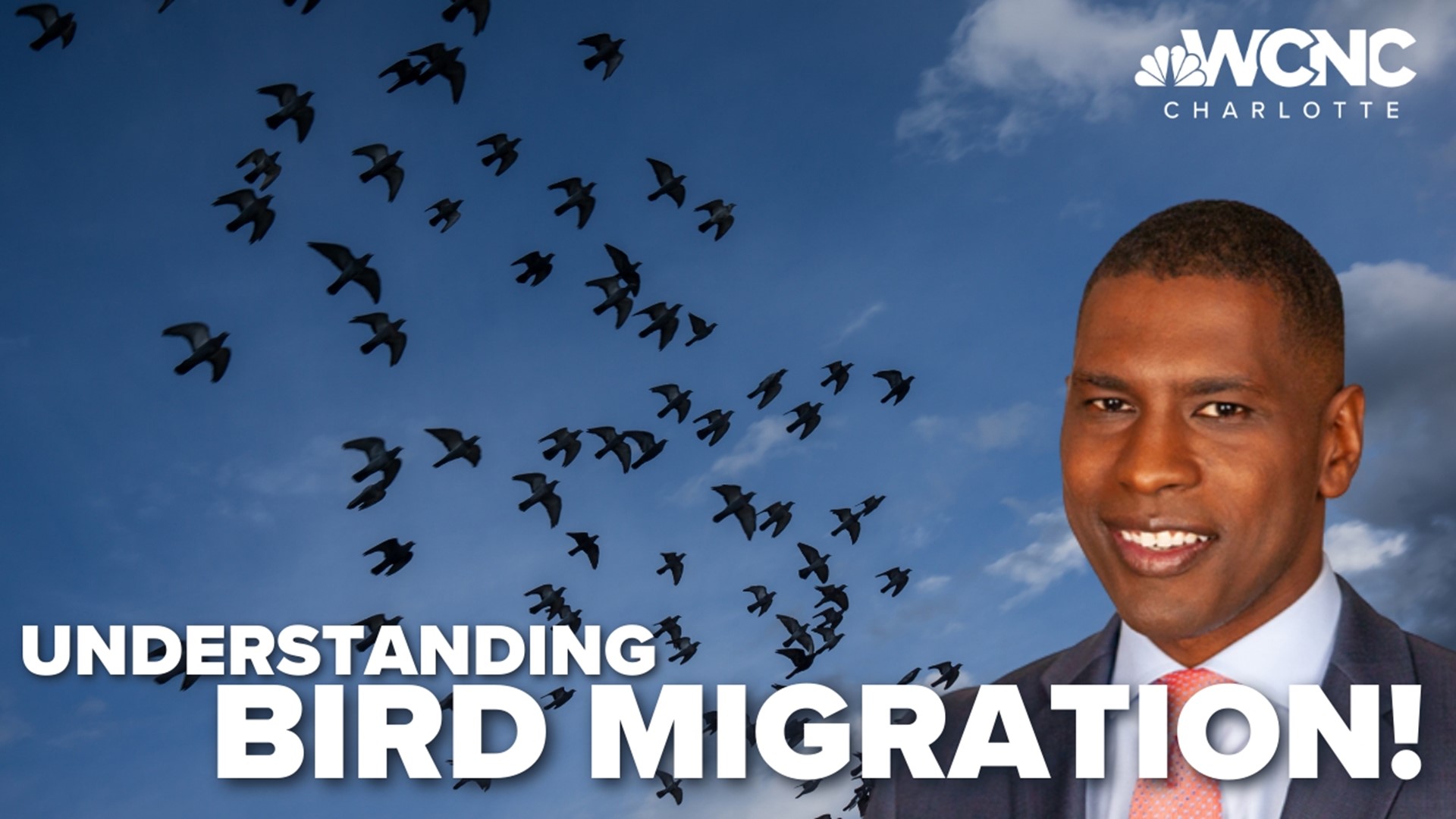CHARLOTTE, N.C. — Fall migration for birds is underway. As millions of birds travel between winter and summer homes, officials say there are things you can do to help them arrive safely.
Birds are on the move every night through North Carolina.
“Most songbirds navigate at night,” Ben Graham, a senior communications manager for Audubon North Carolina, explained. “And they navigate using the moon and stars, which I think is a pretty amazing thing about bird migration. It’s happening while we’re asleep and we don’t realize it.”
He expressed how exciting it is to have many different types of species migrate through the Charlotte area. He described some Warblers as tiny-super colorful songbirds.
“And they are passing through North Carolina, so right now if you step outside, go to your local park or look in your backyard, there’s a chance you can see a bird that just traveled all the way from Northern Canada,” Graham said.
By using the Bird Migration Explorer, you can identify a bird, learn about it, and track its migration movement.
The biggest threat birds face is light pollution.
“When there are bright city lights in urban centers and suburban areas, that can throw birds off their course. It disorients them," Graham said. "Often times they’ll start flying in circles, they collide with building or with windows. They can cause bird fatalities. It can injure birds. It’s a big problem.”
Graham said hundreds of millions of birds are killed in collisions with buildings each year in the United States.
You can help during migration season by turning off your lights at night. And some North Carolina cities have already adopted a city-wide Lights Out program.
Bird migration season peaks twice per year in both spring and fall.
Contact KJ Jacobs at kjacobs3@wcnc.com and follow him on Facebook, Twitter and Instagram.

